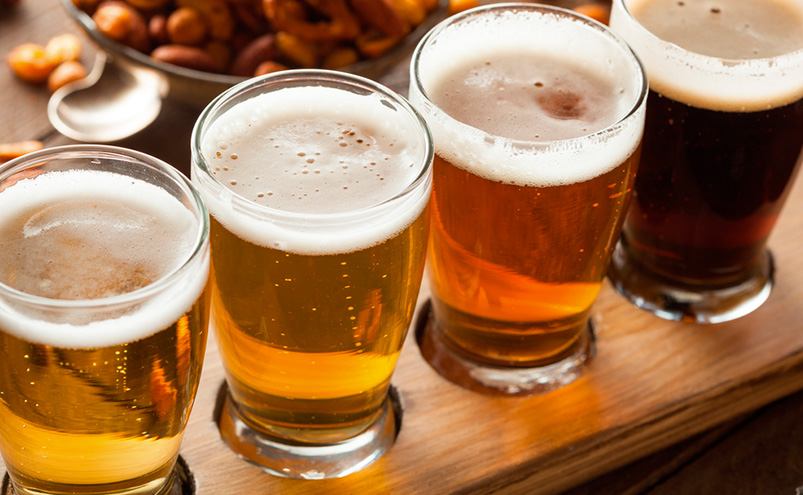Alcoholic beverages are very popular all over the world. They are common in every celebration or gathering. While light to moderate drinking can be relaxing and enjoyable, excessive amounts of alcohol can lead to detrimental health problems.
According to the Center for Disease Control and Prevention (CDC), excessive alcohol consumption leads to about 79,000 deaths per year in the United States, ranking it third among the top lifestyle-related causes of death in the country.
- The CDC recommends everyone to limit drinking to 12 ounces of regular beer, 5 ounces of wine, and 1.5 ounces of 80-proof distilled liquor, all of which have 0.6 ounces of pure alcohol.
- The Dietary Guide for Americans indicates that moderate drinking is limited to only 2 drinks for men and 1 drink for women in a day.
The immediate health effects of heavy drinking include injuries, miscarriages, birth defects of an unborn child, and alcohol poisoning, a condition wherein the high levels of alcohol in the blood inhibit the proper functioning of the nervous system, often resulting in loss of consciousness, respiratory depression, coma, or death. The long-term health effects of alcohol on heavy drinkers are significant and can be life-threatening too!
Cardiovascular Problems
Alcohol impairs proper brain function, including its ability to control the dilation and constriction of blood vessels. Heavy drinking causes the blood pressure to rise, which can lead to stroke and heart problems. Alcohol also increases the tendency of platelets to aggregate and form blood clots, increasing the risk of heart attacks and stroke. Cardiomyopathy and atrial and ventricular fibrillation can also occur in heavy drinkers. In cardiomyopathy, the heart muscles become weak and eventually stop working, whereas in atrial and ventricular fibrillation, the heart chambers beat irregularly rather than rhythmically, causing loss of consciousness and sudden death.
Liver Cirrhosis
Liver cirrhosis is a common health condition among heavy drinkers. When too much alcohol is present in the body, the liver, which normally metabolizes fats first, is forced to remove alcohol by breaking it down first, causing fat to accumulate around the liver. Layers of fats can then envelope the liver, interfering with normal blood flow that brings oxygen and nutrients to the liver. If this prolongs, the liver tissues die, forming scars and resulting in liver failure.
Impaired Brain Function
According to James Garbutt, MD, a psychiatry professor at the University of North Carolina and researcher at Bowles Center of Alcoholic Studies, the brain shrinks at about 1.9% per decade as a person ages, but excessive alcohol speeds up this shrinkage, leading to memory loss and dementia. Alcohol also affects the ability of the brain to make decisions, solve problems, and think rationally.
Cancer
As alcohol is metabolized in the body, it is converted into acetaldehyde, a potent carcinogen that is likely the reason why excessive alcohol consumption is considered to increase the risk of cancer. The body parts where this cancer could develop include the mouth, liver, breast, and colorectal region.
So, now that you know what can happen, it’s time to moderate your alcohol intake!
Drinking should be taken in moderation; otherwise, it can impair your bodily functions.
Some practical tips to help moderate your drinking during this festive season include:
- Planning ahead of time how many drinks you will have at an event.
- Drinking at least one 8oz glass of water in between alcoholic drinks.
- Substituting sparkling water or tonic water with lime for an alcoholic drink.
- Seeking other ways to reduce stress such as exercise and meditation.
Further, to combat the damaging effects of alcohol, you can take our Brain Formula, a combination of herbs and vitamins to prevent neurological diseases and mental decline. It also aids in dealing with stress and anxiety and improves memory and alertness. You can also try Greenergy, an antioxidant-rich green drink powder that promotes good cardiovascular health and boosts the immunity.The number way to avoid the damaging effects of alcohol is to eliminate or limit how much alcohol you drink.
* REFERENCES:
Centers for Disease Control and Prevention (CDC). Alcohol-Related Disease Impact (ARDI).
National Institutes of Health, National Institute on Alcohol Abuse and Alcoholism. NIAAA
J. Alcohol Research and Health, January 2002; vol. 27: pp 39-51.
University of Michigan Health System, "Alcohol: Effects on Health."
Journal of the American College of Cardiology. 2007; 50:1009.
Dietary Guidelines for Americans, 2010. U.S. Department of Health and Human Services.














